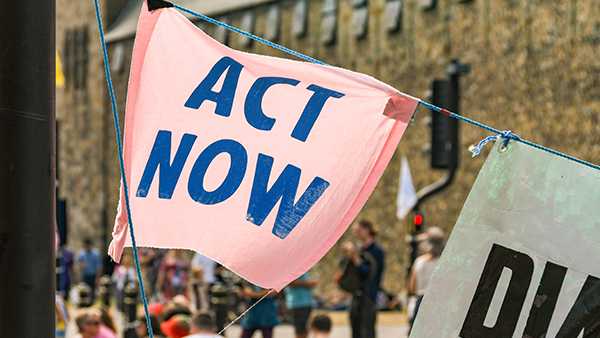I had a déjà vu moment visiting Downing Street earlier this week.
My last visit had been in the dog days of the May government. The atmosphere then was somewhere between sedate and funereal. Visitors to Number 10, waiting for their appointment, sit on a leather sofa in a corridor between the reception and the press office. In ten minutes, I’m not sure anyone walked past me.
This week, so crowded and frenetic had my old workplace become, that continuously changing groups of enthusiastic and self-assured young people were using the corridor as an improvised meeting room.
My memory resonated with their confidence and zeal. All at once it was the summer of 1997, when I was part of the New Labour team.
As I am sure current Number 10 staff would be keen to confirm, there is little an ageing and cautious centrist like me has to offer their crusade to build a new ‘levelled up’ and proudly independent Britain. Except perhaps experience.
I fear I am not the sort of ‘weirdo’ that Dominic Cummings wants in his Downing Street team. But still - here, in no particular order, are my 9 tips for the people who (I know) feel at the moment they can achieve anything:
9 TIPS FOR NUMBER 10
Value critical friends more than ‘yes’ men
Masters of the universe may reasonably expect blind deference. But this is worthless and easy to fake. New Labour too often pushed away or ignored those who offered even a friendly challenge: the TUC’s John Monks who could have modernised industrial relations, Barbara Castle who was right about pensions, and Robin Cook who warned about Iraq are all rather poignant examples.
Do the hard stuff early
We were frenetic in office. But, as Blair was to later acknowledge, in areas like public service reform it wasn’t until well into the second term that the Government started getting its teeth into the hardest issues. (Crucially, this was after the spending taps were turned on.)
The Brexit timetable makes early disruption inevitable for Johnson but, also, if taxes are to be raised or targets abandoned, it is probably best to do it now.
Process matters
When it comes to Government machinery; by all means, innovate. We did this with ideas like Policy Action Teams and the Delivery Unit. But reforming due process is not the same as doing away with it. There is already too much of the Johnson project that feels reminiscent of the cliquishness and opacity of Blair’s ‘sofa government’.
Value the Whitehall triangle
This tip may already be too late, but despite its frustrations the negotiation of policy between Downing Street (responsible for overall strategy including the voters), the Treasury (responsible for numbers, good on scrutiny), and the service department (responsible for detail, implementation and stakeholders) does actually work.
With it you may be slightly less bold; without it you will make many more needless mistakes.
Under-promise and over-deliver
The Prime Ministers’ style may make this impossible, but deferred gratification is an extremely wise political discipline.
Learn the lessons of your predecessors
Tending to believe your own propaganda, you will assume everything done by those who came before you was wrong, and every mistake avoidable. But in time you will face many of the same barriers and realise that officials are quietly dusting off old advice notes.
There are some people in and around Whitehall with reliable memories. It’s worth finding them and listening to them.
Help people grow
Most ministers are almost totally inexperienced when it comes to managing big teams, large projects or huge budgets. The pressure of Government means there is little or no time for reflection or development.
Prompted by Tessa Jowell, Valerie Amos and Hilary Armstrong, by the end of the Blair years we were starting to think seriously about training and coaching for ministers. Why should the Cabinet be the least skilled and supported Executive team in Britain?
Try at least to look as though you are doing things with people not to them
With its affection for technocratic centralism, Labour managed to alienate local authorities and public service workers, even while stuffing cash into
their pockets. Remember, first, that very few messages from central Government get down to the front line and, second, the best way to get people to change is to help them see that your idea was theirs all along.
Enjoy it
Every time you walk through the gates and up the street tell yourself just how lucky you are. Remember that feeling because, if the past is anything to go by, from here on it will become ever more challenging.
Related articles
-
The public are ready to go further and faster on net zero
Anthony Painter
The public are ahead of policy-makers and, indeed, most of the business world. COP26 is an enormous opportunity to catch up. Global leaders should take it.
-
Can progressives ever stop the in-fighting?
Matthew Taylor
Biden's victory has caused the left and moderates to fracture again.
-
Can President Biden bring America together again?
Anthony Painter
There is a long road ahead for the new president.




Be the first to write a comment
Comments
Please login to post a comment or reply
Don't have an account? Click here to register.